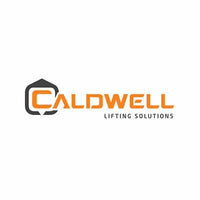DURA-LITE™ PRODUCT FEATURES:
- Lightweight
- Non-Conductive
- Corrosion Resistant
- Complies with ASME B30.20, design category B, service class 4.
- Proof tested with certificate issued.
- DURA-LITETM product is compliant with European Community standards CE.
DURA-LITE™ Beams have been…
- Chemical tested.
- Temperature tested.
- Cycle tested.
- Proof tested with a certificate issued.
COMPOSITE BEAM ADVANTAGES
Caldwell Dura-Lite™ equipment offers many advantages to a wide variety of applications and industries
- Composite material is not detected by radar, ideal for military applications.
- Lightweight composite beams do not reduce crane capacity as much as the steel equivalent.
- Beams 8' and under can be shipped via small package service saving time and money.
- Non-conductive materials are ideal for use in the utility industry.
- Marine applications and other harsh environments are no match for the non-corrosive properties of our composite beams.
- Dura-Lite™ beams are the lightweight, ergonomic solution needed to help reduce work related injuries.
- Service class 4 means that these lifters are designed for 2 million load cycles - that's over 30 years at 200 lifts per day
1. What does Dura-Lite mean? Dura-Lite is a Caldwell brandname. These beams have been chemical tested, temperature tested, cycle tested, and proof tested with a certificate issued. This equipment offers many advantages to a wide variety of applications and industries.
2. What is the difference between a spreader beam and a lifting beam? Lifting beams are typically designed for a bending moment versus the spreader beam that incorporates top rigging and is designed for a compressive load.
3. What are composite lifting beams made of? Caldwell Dura-Lite Composite Spreader Beams are made from materials that are bonded together to form ultra-strong lifters.
4. In what capacities is this lifting beam available? Standard capacities range from 1/4 ton to 3 tons.
5. Does the beam meet any ASME standards? They are engineered to withstand the demands of rugged environments and comply with ASME B30.20 design category B, service class 4, which equates to 2 million lifts or cycles.
6. Would this beam be suitable for an indoor lift? Yes, a spreader beam requires top rigging that increases the headroom required so this product is often favorable indoors.
7. Is it suited to repeat use? Yes, they are lightweight, non-corrosive, non-conductive, amazingly strong, and impact resistant.
8. Do you also stock spreader beams? Yes, we have a composite version of the spreader beam.
9. Can this product also serve as a spreader beam? No, but we do stock adjustable products, also composite, in the same capacity range.
10. Is the product suited to military applications? Yes, the composite material is not detected by radar—ideal for military applications. However, non-conductive materials are also ideal for use in the utility industry, for example.


